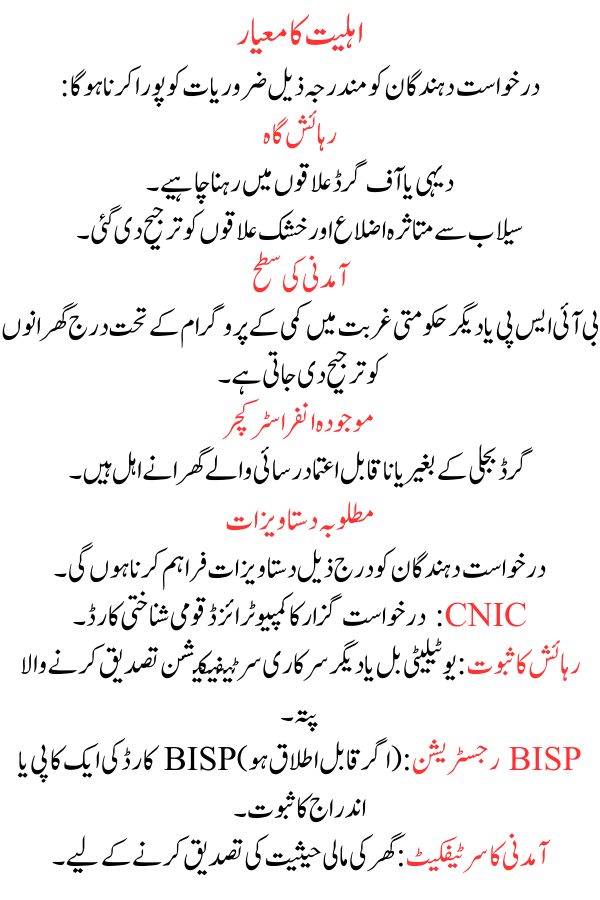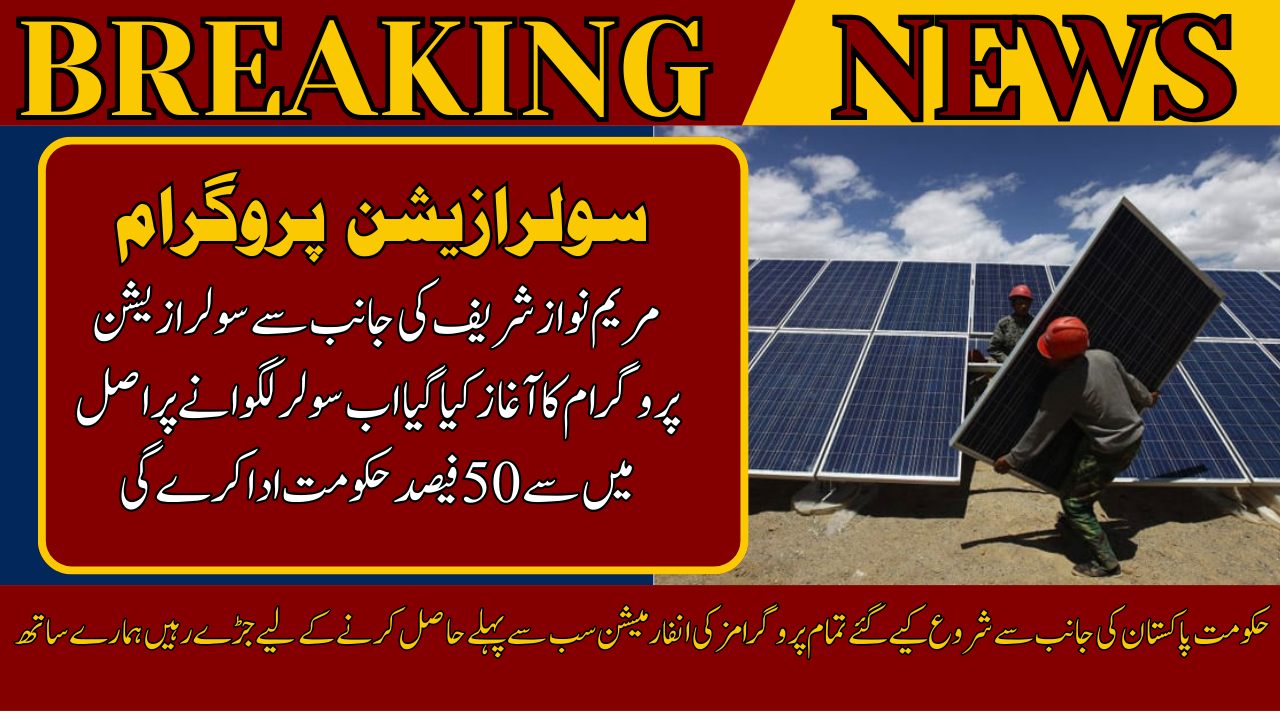Solarization Program
The Pakistani government is boarding on an determined solarization program designed to provide free solar panels to 500,000 households, primarily focusing on rural and underserved regions. This creativity aligns with Pakistan’s renewable energy goals, addressing power shortages, reducing energy costs, and promoting sustainability.
More Read:Finland Government Scholarships
Quick Overview of the Solarization Program
| Program Name | Solarization Program |
| Start Date | December 2024 |
| End Date | Ongoing (Phase-wise implementation) |
| Target Households | 500,000 |
| Priority Areas | Rural/off-grid regions in Sindh province |
| Assistance | Free solar panels |
| Funding Source | Government of Sindh & World Bank |
| Application Mode | Online and NGO-led data collection |
What is the Solarization Program?
The solarization Scheme is a joint creativity of the Sindh government and the World Bank. Its primary impartial is to provide sustainable, renewable energy solutions to rural communities while easing the burden of electricity bills. By equipping households with solar panels, the program not only supports ecological goals but also uplifts frugally disadvantaged areas.
More Read:Sindh Government E-Taxi Program
Application Process
To ensure fair distribution and transparency, the government has laid out a structured request process:
Step 1: Identification
- Data Collection: Initial data is gathered through the Benazir Income Support Program (BISP).
- Collaboration: NGOs like HANDS and Sindh Rural Support Organization (SRSO) play a key role in verifying eligible households.
Step 2: Application Submission
Eligible individuals may apply through:
- BISP Offices: For those already registered.
- Local NGO Outlets: Partner governments assist in completing applications.
- Online Portal: A government portal (to be announced) will provide easy access for urban and tech-savvy applicants.
More Read:Sindh Government E-Taxi Program
Step 3: Approval and Distribution
- Applications are reviewed by local energy offices.
- Approved households are notified via SMS or postal mail.
- Solar panel connection teams will visit approved locations.
Eligibility Criteria
Applicants must meet the following requirements:
- Residence
- Must reside in rural or off-grid areas.
- Priority given to flood-affected districts and arid zones.
- Income Level
- Households listed under BISP or other government poverty mitigation programs are prioritized.
- Existing Infrastructure
- Households without grid electricity or with unreliable access are eligible.
Required Documents
Applicants must provide the following documents:
More Read:Benazir Kafalat Program
- CNIC: Computerized National Identity Card of the applicant.
- Proof of Residence: Utility bill or other official certification verifying address.
- BISP Registration: (If applicable) A copy of the BISP card or proof of enrollment.
- Income Certificate: To confirm the financial status of the household.

FAQs
Can urban households apply?
Urban areas are not the primary focus. However, specific underserved urban zones might be included later.
What is the cost of installation?
The program is totally free for eligible households, with funding provided by the Sindh government and the World Bank.
Will maintenance be provided?
The government has proposed a support system for basic care during the first two years. Households will be educated about upkeep.
More Read: CM Punjab Announces Free Laptop Scheme
Is it only for Sindh?
Currently, the program is being piloted in Sindh. Based on its success, other shires may adopt similar creativities.
How do I know if my application is accepted?
Approved applicants will receive a notice, and a local team will contact them for installation scheduling.
Impact and Significance
Economic Relief
By reducing dependency on expensive grid power, households will save money, which can be redirected toward vital needs.
Environmental Benefits
Solar energy reduces greenhouse gas emissions, bring into line with global temperature change easing goals.
Empowerment of Underserved Communities
Providing reliable energy will improve education, healthcare, and business chances in rural areas.
More Read: Special Reward Scheme
Conclusion
The solarization Scheme is a step toward a greener, more equitable Pakistan. With its focus on sustainability, affordability, and inclusivity, it promises to transform energy access for millions of people. If implemented well, it could serve as a model for other boonies and countries pushy for energy freedom and environmental preservation.
